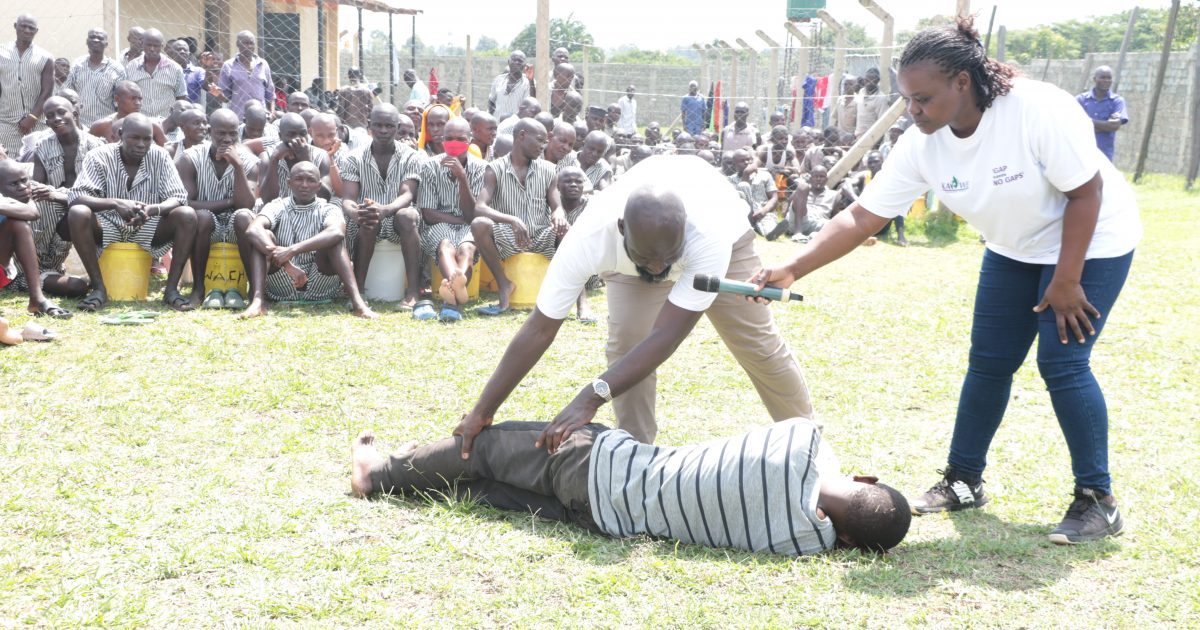Kenya Association for the Welfare of People with Epilepsy (KAWE) has expressed fears that most epileptic patients in the country cannot afford medication.
KAWE clinical officer and a specialist on epilepsy Brian Tambani noted that about 5% of Kenyans suffer from epilepsy but only 20% of the patients can afford medication for the disease.
He made the revelation at Korinda GK prison in Busia when he joined the 690 inmates during the Idd Ul Adha Muslim celebrations when he led a team to offer medical education on how to take care of patients living with epilepsy in society.
While giving his remarks, Dr. Tambani noted that the disease was widely associated with witchcraft or demonic attack but disputed the myths and urged the society to speak out and seek medication as epilepsy could be treated.
“Epilepsy is not a demonic disease as the society has put it. Epilepsy is a common condition that affects the brain and causes frequent seizures,” said Dr. Tambani.
He added that, “in epilepsy, the electrical signals in the brain become scrambled and there are sometimes sudden bursts of electrical activity. This is what causes seizures”.
There is high possibility that epilepsy is partly caused by your genes affecting how your brain works, as around 1 in 3 people with epilepsy have a family member with it. Other causes may include damage on the brain as a result of stroke, a brain tumor, severe head injury, drug abuse or alcohol misuse, brain infection and lack of oxygen during birth.
Unfortunately, despite the considerable burden of this disease in Africa, patient care and support are inadequate.
“The challenges associated with epilepsy management in Kenya include limited access to diagnostic tools and treatments, inadequate care coordination, and a lack of disease awareness and stigma from the society,” noted Tambani.
His sentiments were echoed by KAWE CEO Patrick Ingechi who noted that there is a need for sensitization in institutions like schools, prisons, and among healthcare workers who interact with the patients daily.
Ingechi noted that the burden of the disease is exacerbated by the high incidence of acquired causes and the large treatment gap that has forced parents to hide the patients from the public.
“Children with epilepsy who reside in the African continent are faced with some of the greatest challenges of receiving adequate care as most countries lack skilled personnel to manage the disease shifting the disease to psychiatric services, thus potentially compounding the stigma associated with the condition,” noted Ingechi.
According to Ingechi, in Kenya little data exist which can help assess the true proportion of comorbidities suffered by children with epilepsy. This has left room for high assumptions further aggravating to the delayed interventions and procurement of antiepileptic drugs.
The coordinator of communicable diseases in Busia county Grace Mudambo urged the community to embrace patients living with epilepsy noting that as a county, they remained committed in ensuring sensitization is done to mitigate the myths and norms that cause stigma in the society.
“We will try to educate the public through CHVs on the stigma associated with epilepsy which often arises from the cultural beliefs about the cause of epilepsy, as in many societies epilepsy is not thought to be a biomedical illness affecting the brain but is thought to be caused by spiritual beliefs and sometimes contagious,” noted Mudambo.
Busia Prison County Commander Omondi Adero applauded the organization for celebrating with inmates as it helped reduce stress and give them second thought about the society.
By Absalom Namwalo




